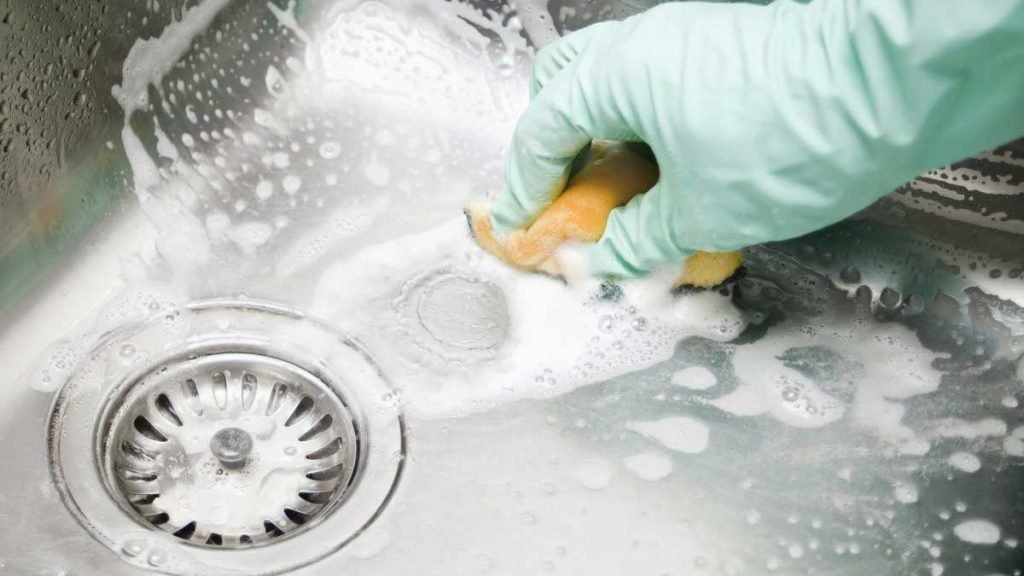The drainage system works for every home. It takes out the wastewater and keeps the house from stinking odors. Also, the health implications of living without a properly installed system can be so drastic. Hence, no one is interested in living with clogged drains,
It is essential to take proper care of the system. Drainage maintenance is an essential step in keeping your house safe from leaking pipes and clogged drains. Learning to do this yourself will help save more money than expected. However, many homeowners think it is impossible to get this done at home when dealing with clogged drains, so they buy a chemical drain cleaner or contact a plumber.
Of course, it is ok to get your system checked and fixed by an expert, and you can even contact expert plumbers here.
Reasons to avoid chemical drainage cleaners
While resolving clogged drains, many people consider using chemicals as the best option even when it is not entirely safe to use. Below are some reasons you should avoid chemical drain cleaners and go for natural ones.
- Corrosion
Drain cleaners consist of harsh chemicals intended to break or wash away clogs. While this may help achieve the desired result, it has a significant consequence that should be avoided at all costs.
The chemicals in the cleaners are corrosive, and as such, they can damage your pipe. Damage pipes mean you now deal with a bigger problem that includes leakages. You will also need to spend a lot of money replacing the pipes and paying for the repair.
- It may be ineffective
The fact that it is a chemical does not naturally mean it must work. Some chemical cleaners will not work on the drain either because the clog is too hard or because the chemical is just ineffective. This means buying a chemical that does not work and spending more time and money cleaning the drain.
- Not safe for you
Using chemical drain cleaners comes with the requirement to keep to its safety procedure. This is because the chemicals are harmful to humans and cause serious health problems. It can affect your skin, eye, and even the environment. Having this chemical at home demands that you are a little more careful, especially if you have small children who don’t know what is in the container.
How to unclog drains without chemicals
- Use hot water
Using hot water is one of the ways to unclog drains without chemicals. It is an old remedy that still works. If you notice a delay in water flow, try to use hot water. Using this is as simple as locating the clogged drain and pouring the water into the drain to melt the clog.
While this is effective, it is essential to note that it can only work for small clogs. You will also need to pour more water to achieve a better result repeatedly.
Take your time to do this until you achieve the result you want. Once you notice that the clog has been removed, you will still need to wash the drain with hot water. This method often works for removing minor clogs. Where you are dealing with solid or hard clogs, you may need to try out another option if this does not work.
- Use baking soda and vinegar
Another popular way of unclogging your drains without chemicals is by making a home solution consisting of baking soda and vinegar. While baking soda may be considered a chemical, it is also a natural ingredient that is extensively saved for humans and suitable for many purposes, including unclogging your drain. Prepare a natural drain cleaner by adding baking soda and vinegar to the paste. Pour the paste inside the drain and let it wait overnight. Wash it away the next day with hot water.
- Use a plunger
The third way to unclog a drain without chemicals is through equipment like a plunger. If you want to learn how to unclog drain without chemicals, then you can start the training by getting yourself a plunger if you do not have one. Where you do, get the work by inserting the plunger into the drain.
Once the inserted plunger reaches the clog, use it to push through until you break the clog into several pieces. Be persistent until you achieve the result but be careful not to break the plunger. This can happen in case of hard clogs, so remove your plunger if you are unable to use this option.
Where the plunger successfully unclogs the drain, do not leave the piece inside. Pour boiling water down the drain to flush them out. This will melt the remaining clogs and grease to give you a free drain ready to remove wastewater.
- Snake the drain
If the plunger does not work, then get yourself drain snaking equipment like a corkscrew to get this done. Inset the corkscrewed and turn it clockwise. Once you have a firm grip of the clog, push to break it apart. Now rinse off the remnant with hot water.
Conclusion
Using natural alternatives to clean your drain can be more helpful than anything; it can save you the stress of waiting for a plumber.
However, it is essential to know that using any of the above tips is not a permanent solution to the problem. This is why many are interested in learning how to unclog drain without chemicals so they can replace chemical cleaner with available natural options.
